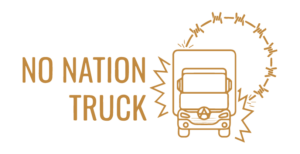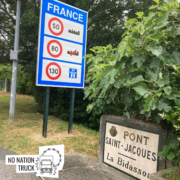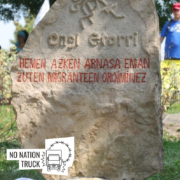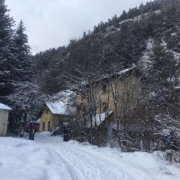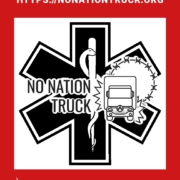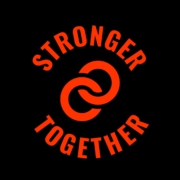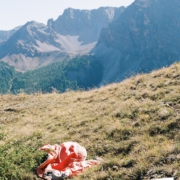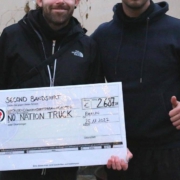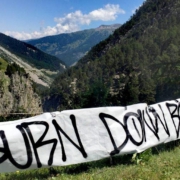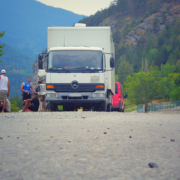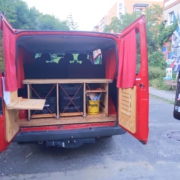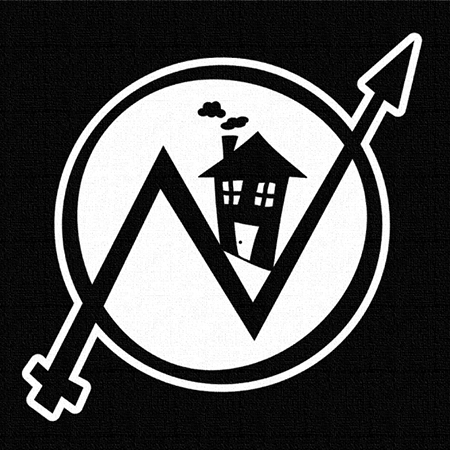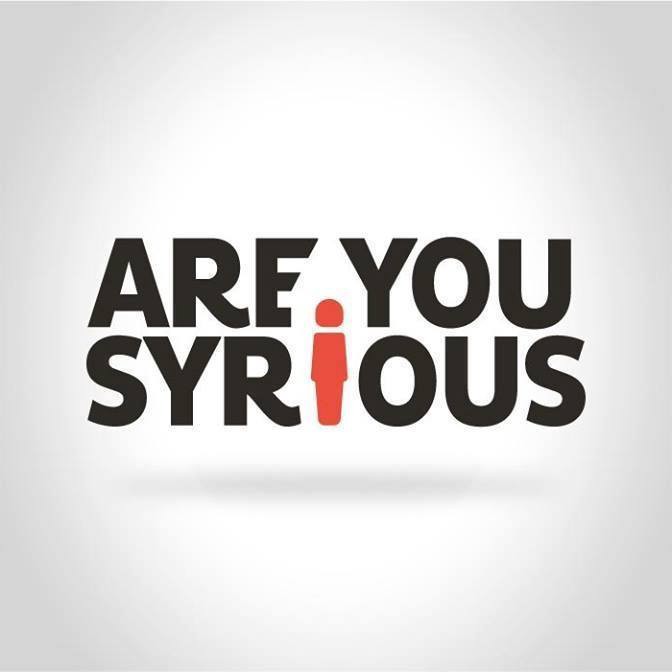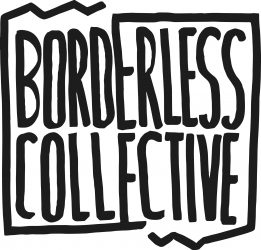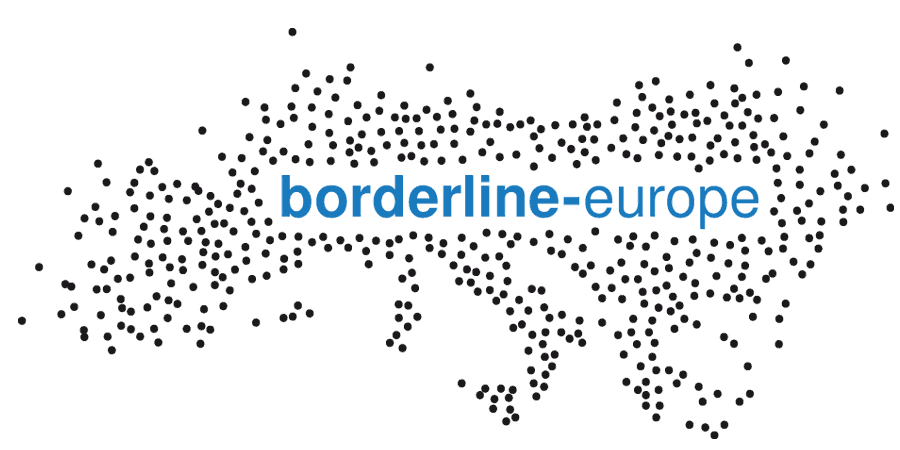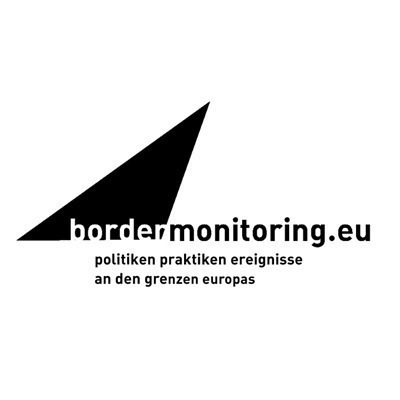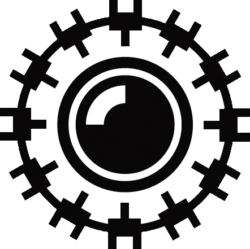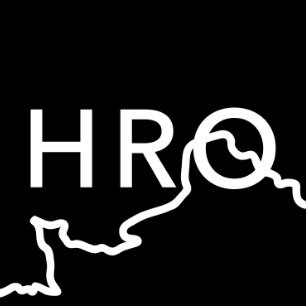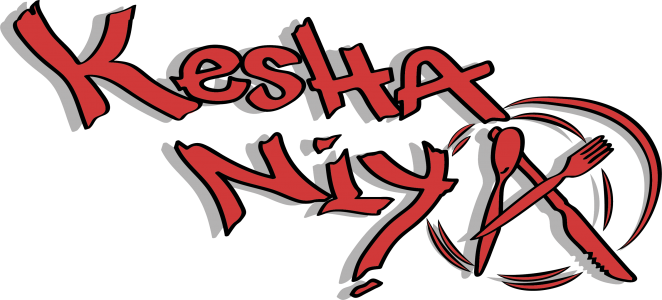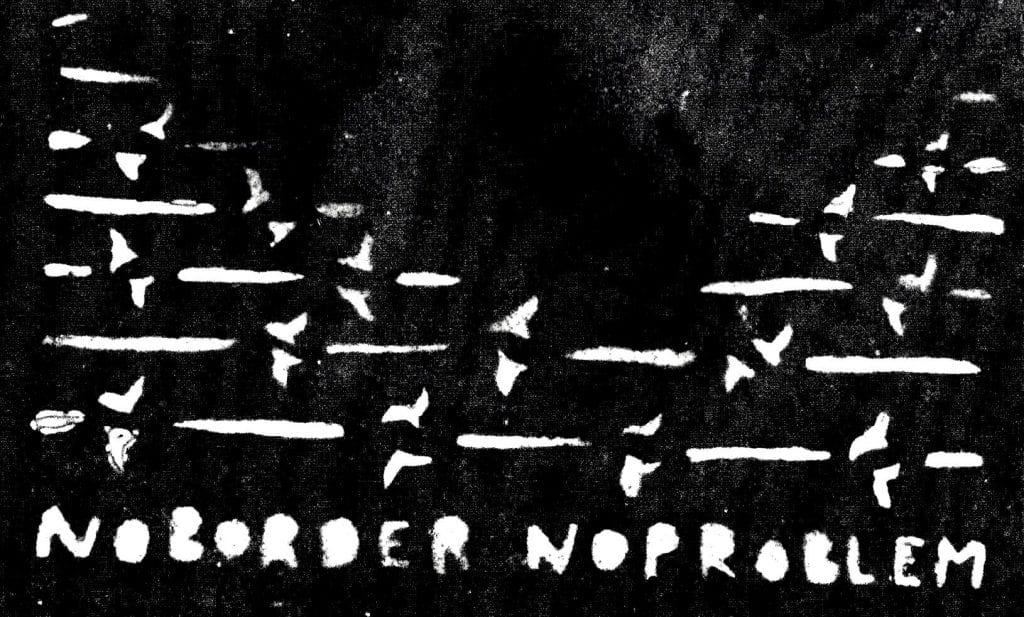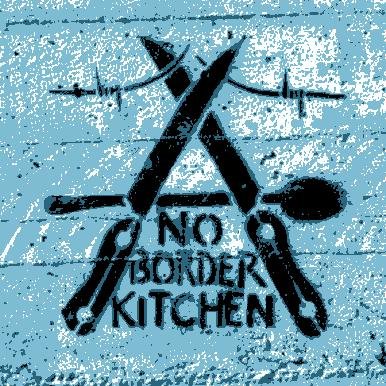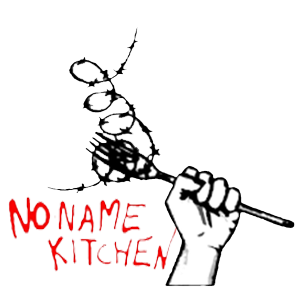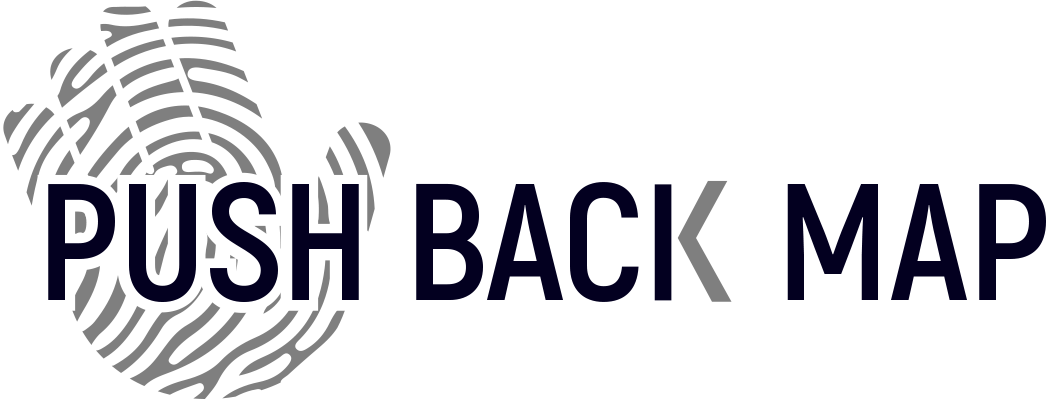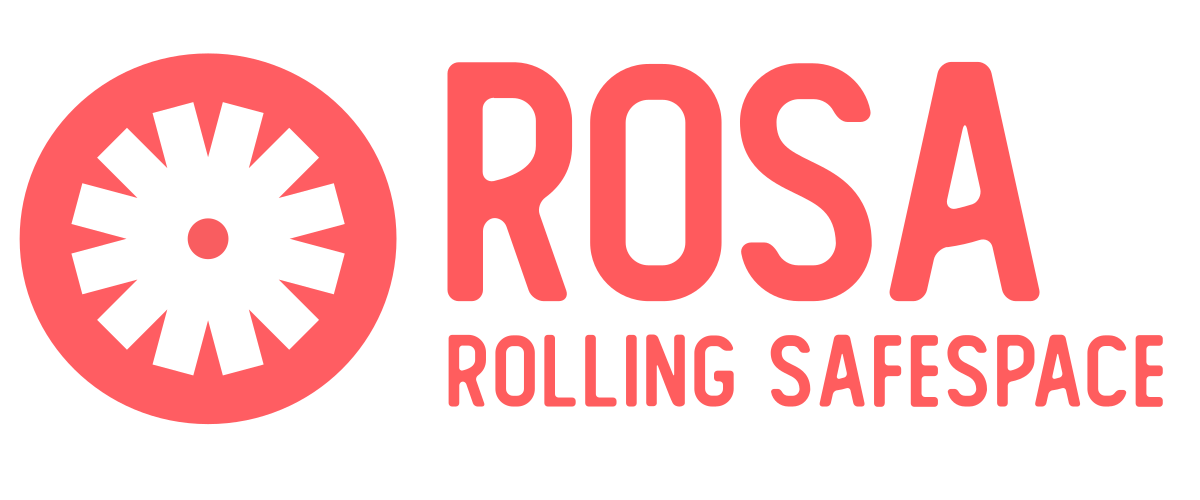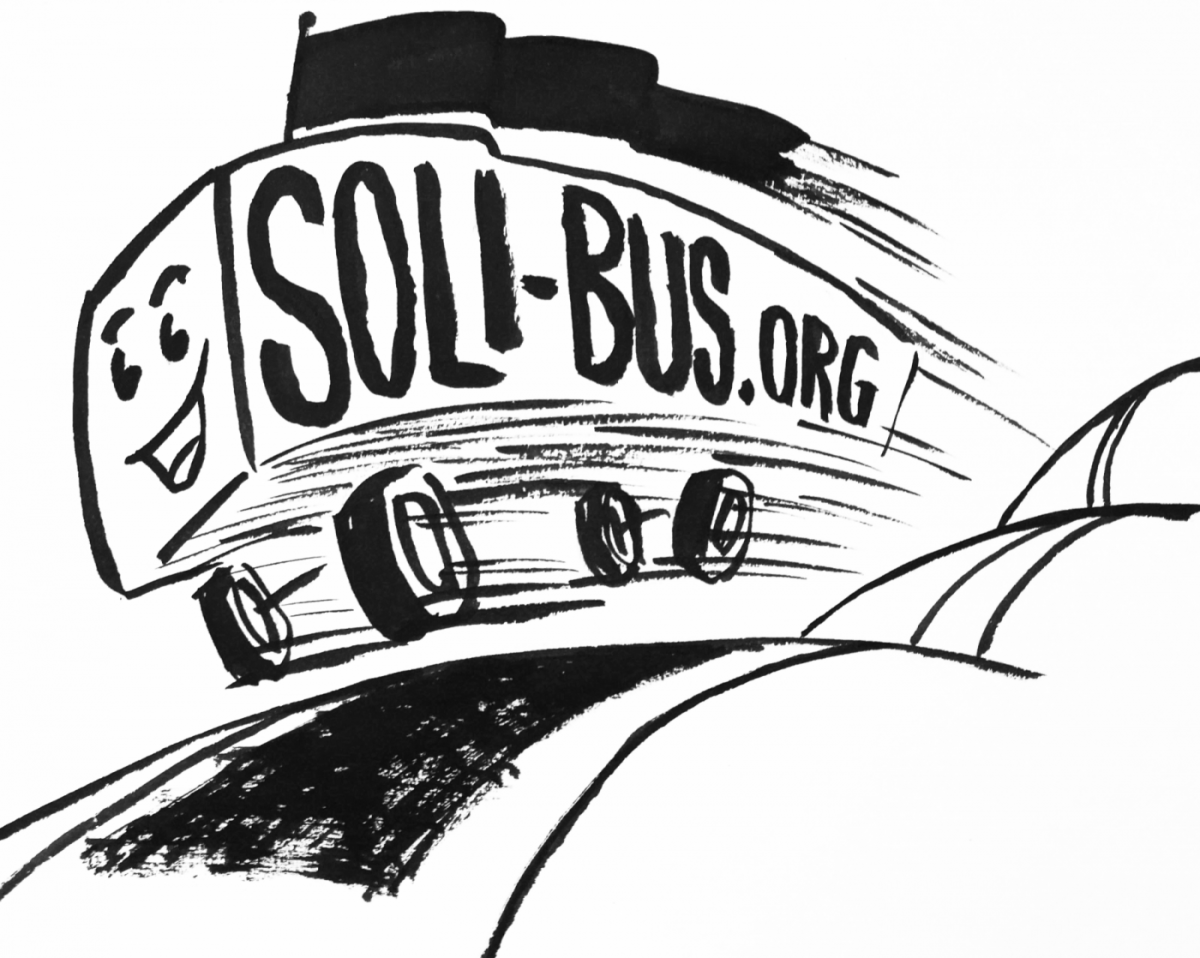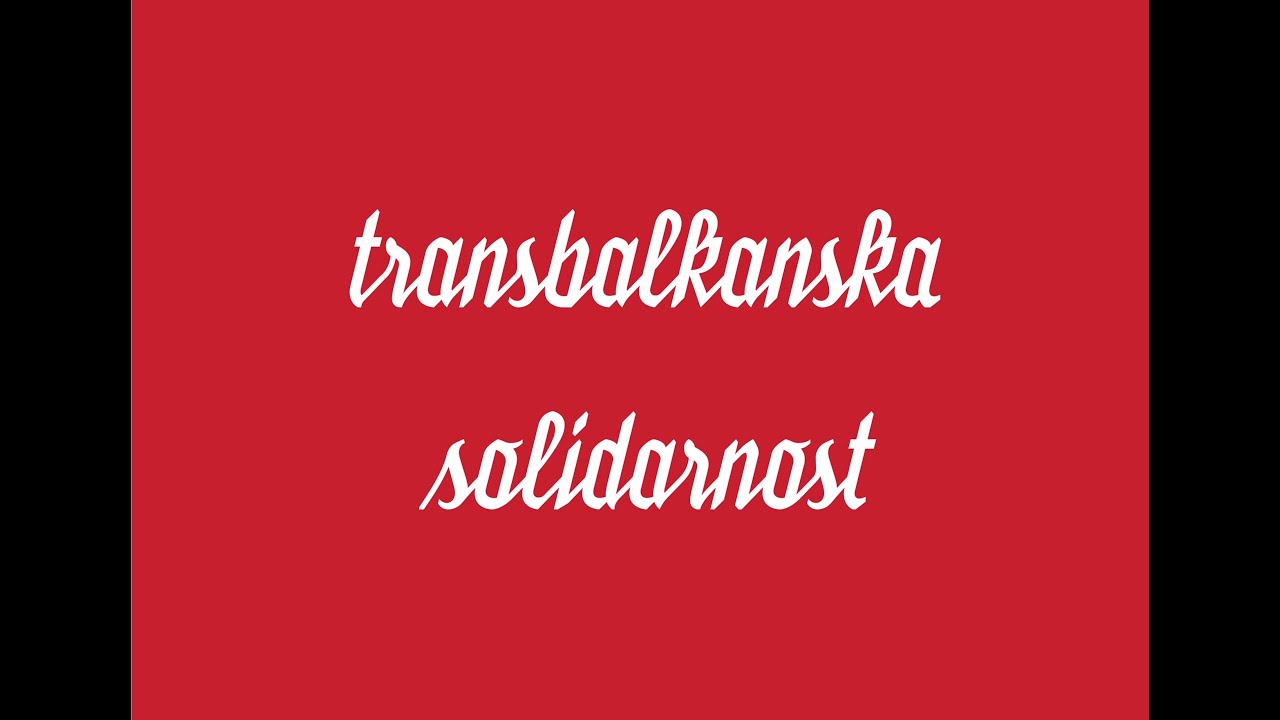(Part 2) A travel report from the Basque Country: Kaixa! Saludos de Euskera Herria!
A travel report from the Basque Country: Kaixa! Saludos de Euskera Herria! (part 2)
A few people from our group were in the Basque Country last week to connect with solidarity structures in the border region. Through the exchange we can learn from each other on the one hand and on the other hand see how we can connect the different struggles. Because everywhere in Europe people are prevented from moving freely. The strategies are often similar.
Who can imagine something like that in Germany?! – What people in the city of Bilbao achieve by working together
Also in Bilbao there are solidarity groups, like the already mentioned “Ongi etorri errefuxiatuak” (“welcome refugees” in Basque). One focus of them is networking in Spain and beyond throughout Europe. Once a year, the group plans a “Caravane” – each year to a different border region of Europe (“Caravana abriendo fronteras”, in English: Caravane which opens borders). In addition, the group wants to link the refugee movements of the past in Spain under Franco with today’s migration processes, in order to appeal to the solidarity of the population and at the same time to promote a confrontation with the past. This year, the Caravane will travel to Melilla – for the anniversary of the Melilla massacre on June 24, 2022.
The group is also organizing direct support in Bilbao. The group acts on the guideline that their networking only works if they also work locally. Their work has changed repeatedly in this aspect over the last few years. They started by distributing food at the port, from where people try to get on the ferries to the UK.
Now they no longer do this, but run a small office in their neighborhood, which is open four hours a day. They assist with all kinds of concerns and have acquired a lot of knowledge over the years. Whether it is about legal issues, doctors, childcare, etc. They seem to be extremely well connected in their neighborhood. There is a network that organizes sleeping places and manages a few rented apartments that are financed by the neighborhood. Who can imagine something like that in Germany?!
The group also deals with the relatives of missing persons. It collects the stories and brings people together again, since there is no state office for relatives of missing persons. There was also a congress on the subject in Madrid in May 2023.
More information about the group “Ongi etorri errefuxiatuak” in Bilbao at https://ongietorrierrefuxiatuak.info and https://instagram.com/oeebizkaia?igshid=MzRlODBiNWFlZA==
For more information about “Caravana abriendo fronteras” click https://instagram.com/caravanaabriendofronteras?igshid=MzRlODBiNWFlZA==
If you want to read more about the southern Spanish border, you can check out these two websites:
* https://www.apdha.org
* https://caminandofronteras.org
We have learned a lot about the region here, knowing that this is only a small piece of the whole picture. Although the criminalization of and repression against people without EU passports is omnipresent in the Basque Country as well, there is also hope to find comrades everywhere in the fight against the status quo. La Lucha sigue! The struggle continues!
